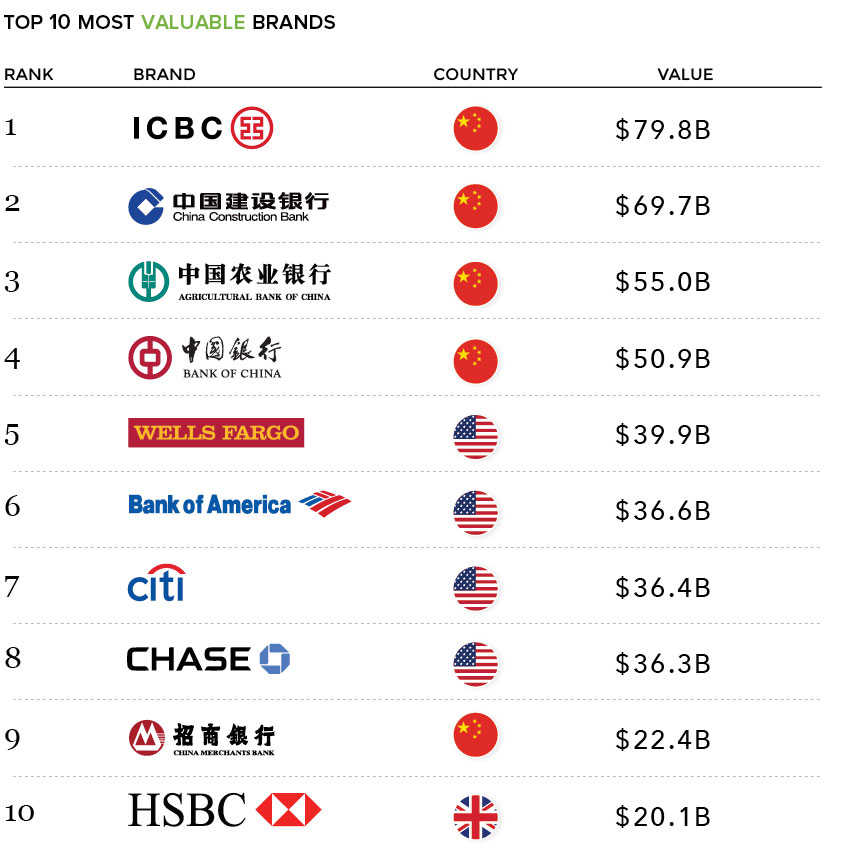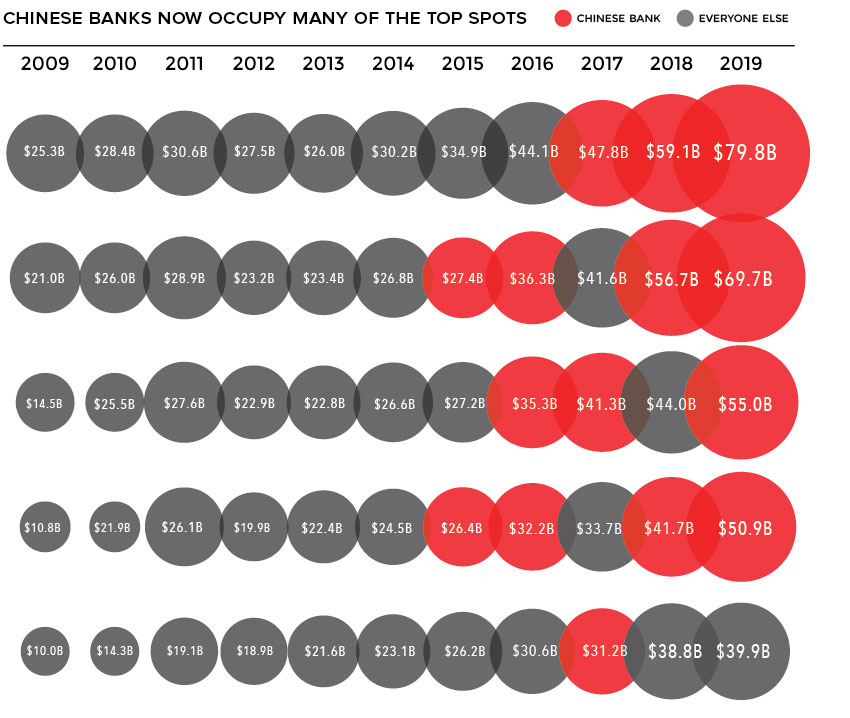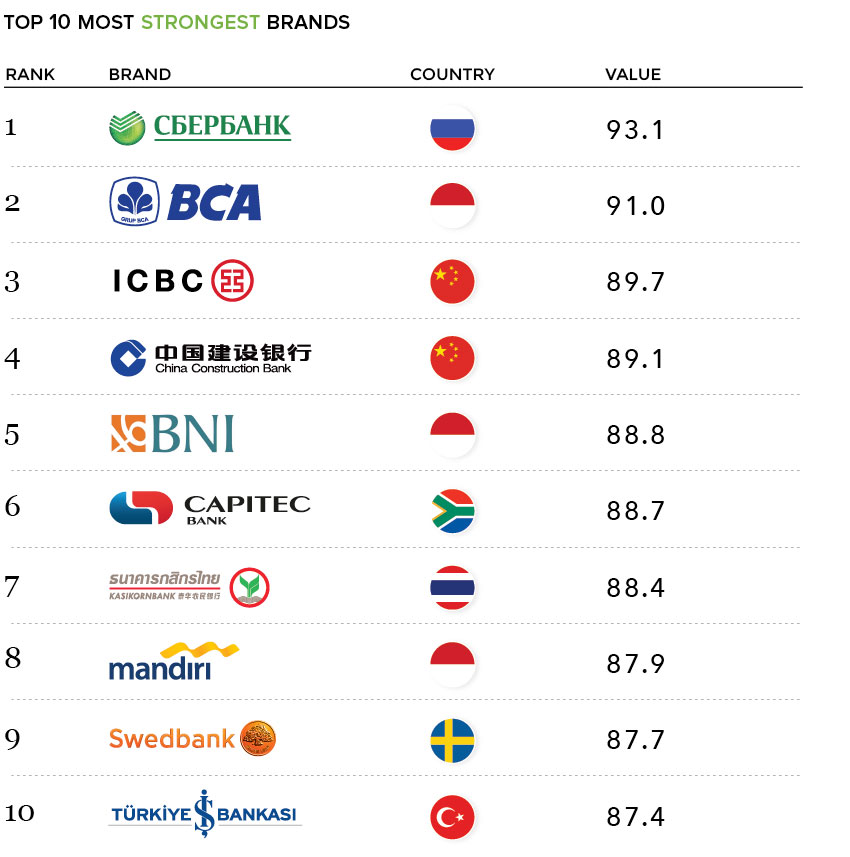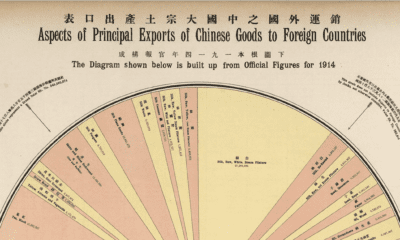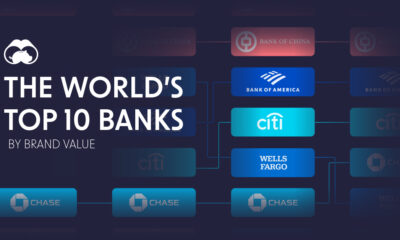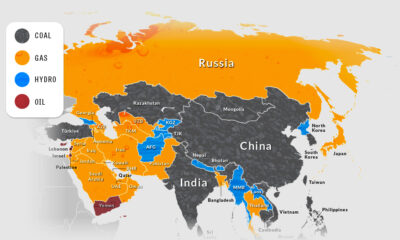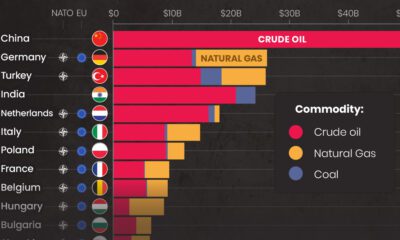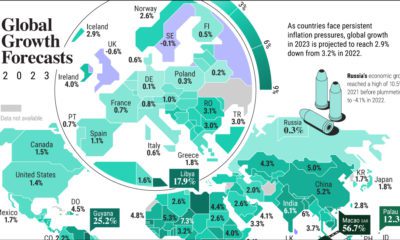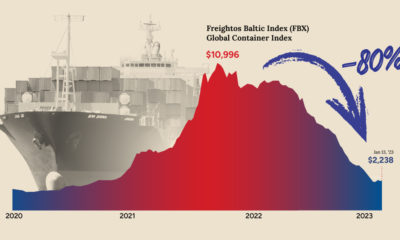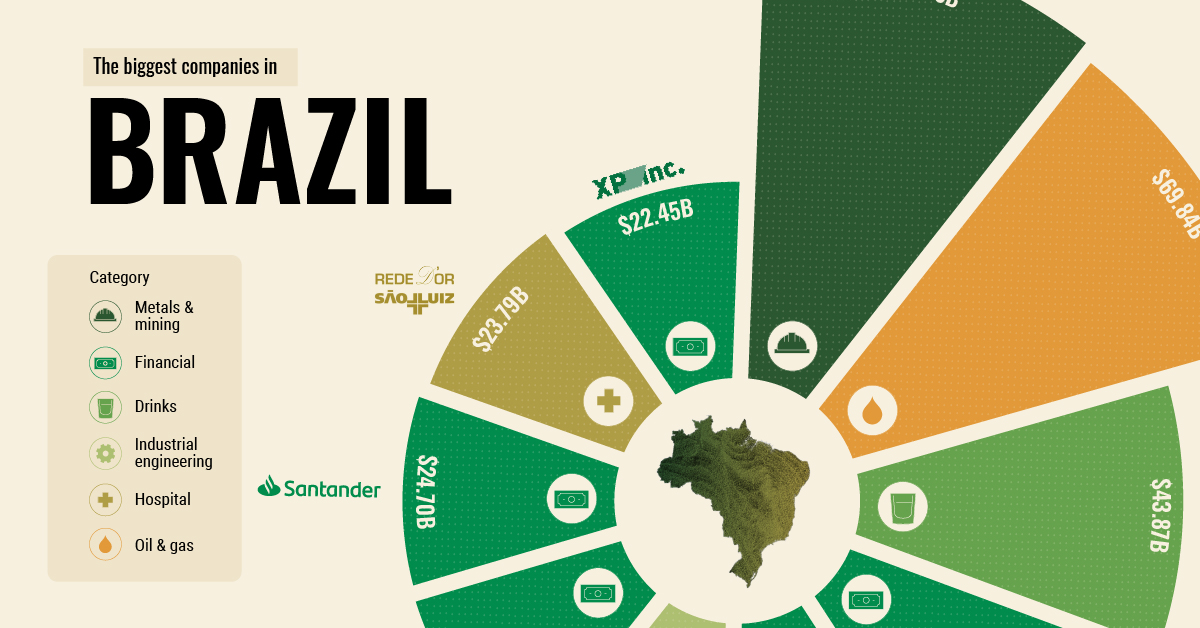But in the realm of financial services, the importance of having a strong consumer brand is also rapidly growing. After all, with hundreds of new fintech entrants positioning themselves to be the “banks” of the future, it seems that brand awareness may be one of the major competitive advantages that incumbent banks can use to protect themselves. Which financial institutions have the strongest brands, and which brands are the most valuable?
Valuable Bank Brands in 2019
Today’s chart looks at the world’s most valuable bank brands, according to a recent report from Brand Finance. It should be noted that brand value in this context is a measure of the “value of the trade mark and associated marketing IP within the branded business”. In other words, it’s measuring the value of intangible marketing assets, and not the overall worth of a business itself. Here are the top bank brands by value in 2019:
For the third year in a row, the Industrial and Commercial Bank of China (ICBC) takes the top spot, with a brand value of $79.8 billion. Wells Fargo is the top U.S. bank by brand value, coming in 5th place – however, the bank actually fell two spots from last year’s ranking while simultaneously losing 9% of its brand value. This is not surprising in light of the recent publicity challenges faced by the bank.
The Ascent of Chinese Banks
It’s also interesting to note that Chinese banks have taken all four of the top spots on the list, with ICBC, China Construction Bank, Agricultural Bank of China, and Bank of China having a combined brand value of over $250 billion. Here’s a look at the ascent of Chinese banks over time:
In contrast, in the entire span of 2009-2014, there were zero Chinese banks that cracked the top five.
The Strongest Bank Brands
Finally, here is a look at the strongest bank brands. It’s worth noting that in contrast to value, these are banks that have executed on their branding, marketing, and sales strategies to have brands that ultimately create a competitive advantage for their business.
Brand Finance measures brand strength by looking at a balanced scorecard of metrics evaluating marketing investment, stakeholder equity, and business performance. For more insights, don’t forget to check out Brand Finance’s report. on Together, BRICS represents 26.7% of the world’s land surface and 41.5% of its population. By GDP ranking, they’re also some of the most powerful economies in the world. But what drives their economies? We’re highlighting the top 10 biggest companies in each country, starting with Brazil.
What Are the Biggest Public Companies in Brazil?
Brazil isn’t just one of the largest and most diverse countries in the world, it is also an economic powerhouse. With over 213 million people, Brazil is the sixth most populous country on Earth and the largest in Latin America. It’s also the wealthiest on the continent, with the world’s 12th-largest economy. Once a colony focused on sugar and gold, Brazil rapidly industrialized in the 20th century. Today, it is a top 10 exporter of industrial steel, with the country’s economic strength coming chiefly from natural resources and financials. Here are Brazil’s biggest public companies by market capitalization in October 2021: At the top of the ranking is Vale, a metals and mining giant that is the world’s largest producer of iron ore and nickel. Also the operator of infrastructure including hydroelectricity plants, railroads, and ports, It consistently ranks as the most valuable company in Latin America. Vale and second-ranking company Petróleo Brasileiro, Brazil’s largest oil producer, were former state-owned corporations that became privatized in the 1990s.
Finance in Brazil’s Top 10 Biggest Companies
Other than former monopolies, the top 10 biggest companies in Brazil highlight the power of the banking sector.
Five of the 10 companies with a market cap above $20 billion are in the financial industry.
They include Itaú Unibanco, the largest bank in the Southern Hemisphere, and Banco Santander Brasil, the Brazilian subsidiary of Spanish finance corp.
Another well-known subsidiary is brewing company Ambev, which produces the majority of the country’s liquors and also bottles and distributes PepsiCo products in much of Latin America. Ambev is an important piece of Belgian drink juggernaut Anheuser-Busch InBev, which is one of the world’s largest 100 companies.
What other companies or industries do you associate with Brazil?
Correction: Two companies listed had errors in their market cap calculations and have been updated. All data is as of October 11, 2021.
